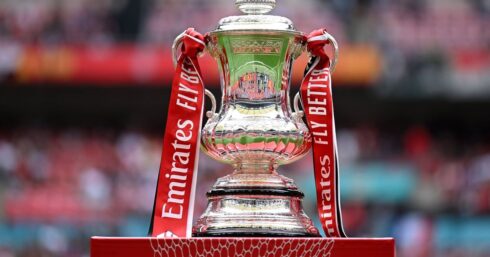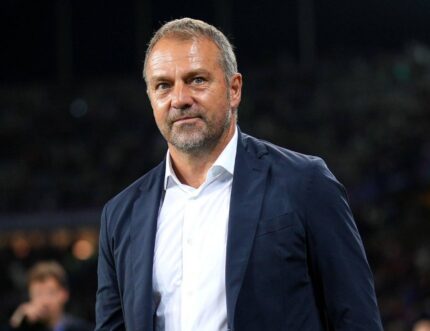The FA Cup third-round draw has set the stage for a thrilling encounter between two of English football’s most storied clubs, with Manchester United, the defending champions, set to travel to Arsenal in a match that promises high drama and intense competition. The draw, which took place at Old Trafford, immediately captured the attention of football fans across the country, rekindling memories of historic battles between these two Premier League giants. United’s triumph in the 2024 FA Cup final against Manchester City adds an extra layer of intrigue to this upcoming fixture, with the holders looking to defend their title against a formidable Arsenal side.
The atmosphere inside Old Trafford was electric during the draw, with audible reactions from supporters highlighting the significance of the matchup. This encounter represents more than just a standard cup tie; it’s a renewal of one of the most passionate rivalries in English football, with both teams eager to make a statement early in the competition. The timing of the match, scheduled for the weekend of Saturday, 11 January, ensures that fans will be treated to a high-stakes battle between two top-tier teams.
Diverse FA Draw Offers Exciting Narratives
The FA Cup third-round draw has produced several compelling storylines beyond the headline Arsenal-Manchester United clash. Liverpool, currently leading the Premier League, will host League Two’s Accrington Stanley in a classic David versus Goliath scenario that epitomizes the cup’s magic. Manchester City will welcome Salford City, a club with a unique connection to the ‘Class of 92’ – a group of Manchester United youth team graduates including Gary Neville, Ryan Giggs, and Paul Scholes who now own the club, adding a fascinating subplot to the competition.
One of the most intriguing narratives comes from the Everton-Peterborough match, where 39-year-old Ashley Young might face his 18-year-old son Tyler – a potential generational showdown that captures the emotional essence of the FA Cup. Tamworth, the lowest-ranked team remaining in the competition, will host Tottenham Hotspur, offering a rare opportunity for a non-league side to create a memorable cup upset against a Premier League team.
FA Competition Structure and Significance
The third round marks a crucial point in the FA Cup, where 44 Premier League and Championship clubs enter the competition, joining the 20 lower-league and non-league teams who have already battled through previous rounds. This stage of the tournament is renowned for producing unpredictable results and creating fairy-tale stories of smaller clubs challenging their more illustrious opponents. The knockout format ensures that every match carries the potential for surprise, with teams knowing that a single performance can define their cup run.
The diversity of the draw reflects the inclusive nature of English football, with clubs from different tiers getting the opportunity to compete on the same stage. From national league outfits like Dagenham & Redbridge to top-tier teams like Chelsea and Manchester City, the FA Cup continues to be a tournament that celebrates the breadth and depth of football talent across the United Kingdom.
Notable Matches and Potential Upsets
Several matches in the draw stand out for their potential for drama and potential upsets. Chelsea’s home game against Morecambe, currently bottom of League Two, represents a classic cup scenario where the lower-ranked team dreams of causing a significant shock. Newcastle United’s encounter with Bromley, another non-league side, offers similar potential for an unexpected result.
The Tottenham-Tamworth match is particularly noteworthy, with Ange Postecoglou’s side facing a non-league team that has already demonstrated their cup resilience by winning a penalty shootout in the previous round. Such matches embody the unpredictable spirit of the FA Cup, where the romance of the competition can see smaller clubs rise to create memorable moments that will be discussed for years to come.
The full draw promises a weekend of exciting football, showcasing the unique appeal of the FA Cup – a tournament that continues to capture the imagination of football fans across the country.














